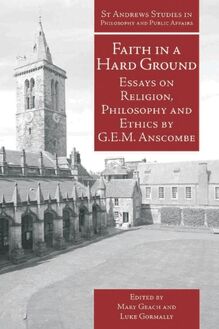-
 Univers
Univers
-
 Ebooks
Ebooks
-
 Livres audio
Livres audio
-
 Presse
Presse
-
 Podcasts
Podcasts
-
 BD
BD
-
 Documents
Documents
-
- Cours
- Révisions
- Ressources pédagogiques
- Sciences de l’éducation
- Manuels scolaires
- Langues
- Travaux de classe
- Annales de BEP
- Etudes supérieures
- Maternelle et primaire
- Fiches de lecture
- Orientation scolaire
- Méthodologie
- Corrigés de devoir
- Annales d’examens et concours
- Annales du bac
- Annales du brevet
- Rapports de stage
La lecture à portée de main
Vous pourrez modifier la taille du texte de cet ouvrage
Découvre YouScribe en t'inscrivant gratuitement
Je m'inscrisDécouvre YouScribe en t'inscrivant gratuitement
Je m'inscrisEn savoir plus
Vous pourrez modifier la taille du texte de cet ouvrage
En savoir plus

Description
Sujets
Informations
| Publié par | Andrews UK |
| Date de parution | 04 octobre 2011 |
| Nombre de lectures | 0 |
| EAN13 | 9781845402693 |
| Langue | English |
Informations légales : prix de location à la page 0,1124€. Cette information est donnée uniquement à titre indicatif conformément à la législation en vigueur.
Extrait
Title Page
RELATIVISM AND THE FOUNDATIONS OF LIBERALISM
Graham Long
Publisher Information
Copyright © Graham Long, 2004
The moral rights of the author have been asserted.
No part of any contribution may be reproduced in any form without permission, except for the quotation of brief passages in criticism and discussion.
Originally published in the UK by Imprint Academic
PO Box 200, Exeter EX5 5YX, UK
Originally published in the USA by Imprint Academic
Philosophy Documentation Center
PO Box 7147, Charlottesville, VA 22906-7147, USA ISBN 1-84540-004-6
Digital version converted and published in 2011 by
Andrews UK Limited
www.andrewsuk.com
Cover Photograph:
St Salvator’s Quadrangle, St Andrews by Peter Adamson from the University of St Andrews collection
Acknowledgements
I would like to thank John Horton and Tim Gray for their helpful comments on the doctoral thesis that forms the backbone of this book. I owe a particular debt of thanks to Simon Caney, my doctoral supervisor. Without his support, and his detailed and helpful criticisms, my original thesis would never have come about. I would also like to thank Keith Sutherland at Imprint Academic and Noel O’Sullivan for their help in bringing this work to print. My thesis was written whilst holding an AHRB doctoral studentship; the work of preparing this book for publication was done during my British Academy Postdoctoral Fellowship. I would like to thank both bodies for their support. Lastly, I owe a special debt to Emma for all her help and love.
Dedication
For Mum and Dad
Preface
‘For too many philosophers’, Graham Long writes, ‘relativism has taken the form of a spectre that must be laid to rest’. Contemporary liberal thinkers in particular, he observes, are especially troubled by the fear that the universal values on which they often rely appear to be threatened by relativism.
Prompted by the prevalence of relativist attitudes, Long offers a new analysis of the debate between relativists and universalists. This includes a searching discussion of ‘reasonable disagreement’, a central concept in contemporary liberal debate. In addition, Long contends that relativism is perfectly compatible with a ‘contingent’ defence of universal values, as well as with a ‘political’ defence of liberal ones.
But how, more precisely, can relativism account for moral justification in a way which allays the fear it frequently inspires? In an extended analysis of this fundamental question, Long offers a reworked relativism that focuses on the crucial role of a moral agent’s own perspective in the exercise of justification. This element means, it is true, that no moral or political judgment can be credited with the completely unassailable character for which leading critics of relativism often yearn. And it means, more generally, that we must accept that there will always be ‘situations where compelling reasons for me fail to be compelling reasons for others’. What it does not mean, however, is moral subjectivism. That would only follow if relativism were necessarily reductionist (reducing values to arbitrary subjective feelings, intuitions or personal preferences) or nihilistic (claiming that all values are worthless). Although some relativists have made such claims, the relativism Long defends completely rejects them. In his formulation, relativism is nothing more than the acknowledgement of a truth which only a dogmatist denies: that different people may hold different moral positions which are equally justifiable. This truth, Long argues, lies unacknowledged in contemporary liberal thought. Arguments for liberal toleration and neutrality can, and should, be founded on relativism.
Finally, Long makes clear that just as his rehabilitated relativism does not entail subjectivism, neither does it undermine the integrity of moral practice. Quite the reverse, a fear of relativism may actually do moral harm by encouraging a wild goose chase, in the form of a ‘search for unassailable, immutable, eternal values’ that turn out not to exist.
Here, then, is far more than a conceptual disquisition. Long’s book is in fact an eloquent and closely reasoned call for a reinterpretation of relativism which presents it in a positive light. Seen in this light, it provides a means of which we can make our own values more, not less secure, whilst simultaneously providing the foundation for an ideal of political toleration which permits others to do the same with theirs.
Noël O’Sullivan
University of Hull
Introduction
Obi-Wan: What I told you was true, from a certain point of view.
Luke: A certain point of view?
Obi-Wan: Luke, you will find that many of the truths we cling to depend greatly on our point of view. [1]
This kind of casual relativism about morality - the idea that things ‘depend greatly on our point of view’ - is deeply embedded in our culture. When we turn to survey the wide array of life practices adopted by people in our society and across the globe, ‘it’s all relative’ is a cry not restricted just to issues of taste or preference but also applied to questions of culture or morality. Just as the early anthropologists were staggered by the degree of diversity present in humanity, the culturally diverse state we are in encourages an attitude of relativism, at least on the part of some. This relativism with respect to moral diversity finds various expressions - things are ‘true for them’, we ‘shouldn’t judge others’, ‘no view’s better than any other’. Moral relativism holds to the possibility that people can have different but equally good moral lives. But there is a countervailing view of other cultures or moralities also present in society. Some phenomena in history and in today’s world produce a different reaction. ‘What they did was wrong, pure and simple’ ‘pure evil’ ‘beyond the pale’ - labels often applied to genocide, for example. These two attitudes, one of a relativist suspension of judgement, and another demanding the imposition of judgement, are in conflict both within and between individuals and societies. How can these two attitudes be combined (if indeed they can), and where does the line lie between acceptance and criticism?
Approaching this question from a concern with relativism, as I will, raises several issues straightaway. For relativism has often been thought obviously false, or pernicious, or both. Controversy continues between those who see relativism as straightforwardly true, and those who see it as patently false, and has done since the debate between Socrates and Protagoras described in the Theaetetus . This debate seems to have become more entrenched of late, as resistance to postmodernism has prompted strident criticism of any kind of ‘subjectivism’. Whilst we might meet relativism in our everyday life, and whilst it does not lack for theoretical defenders, it remains nevertheless a dirty word to many contemporary analytical philosophers. [2] To get anywhere near the bottom of this debate requires first a distinguishing of types of relativism and an explanation of the ways we might come to see things as ‘relative’. Second, and relatedly, there needs to be an examination of what is at issue between the relativist and his/her opponent. Lastly, there remains a question as to whether a successful defence of some variety of relativism can be mounted.
I aim to provide a fresh contribution to this debate. My aim is to examine some of the conceptual issues and present relativism, or at least one variety of relativism, in a new way. In so doing I clarify the relations between relativity and those elements which are often taken to be its opposites - universality and objectivity. The discussion probes some of the complexities involved, and aims to suggest and justify a distinctive and overlooked relativist position. I then go on to examine some of the implications of such a proposal for political philosophy, and in particular liberalism.
Thus, in addition to the controversy over the feasibility of relativism, my work enters another controversy about the nature and desirability of what has been termed ‘political liberalism’. The character and justification of the liberal response to diversity has been the centrepiece of another debate in recent years. Can liberalism provide an account of how to deal with diversity and, equally important, can it provide a justification for that account? I aim to clarify the relationship between relativism and these two questions, concluding that relativism is important to both and can make an especially significant contribution to the latter.
Relativism and the political liberal response to diversity are related in a number of ways. As I have already mentioned briefly, a link is often posited between relativism and cultural diversity. Is diversity an argument for relativism - either direct proof, or a phenomenon that is best explained by relativism? Relativists have advanced both of these theses over the years, and in this book I will say something about such positions. Furthermore, relativism has been used to justify an attitude of tolerance to diverse moralities - an attitude that has been turned against relativism by its critics as sanctioning an ‘anything goes’ approach to morality. Thus, I need to address the question of whether relativism results in liberal tolerance and neutrality, nihilism, or neither. Another link between political and moral theory here is the involvement of a metaethical theory often associated with liberalism - reflective equilibrium. Initially introduced by John Rawls in A Theory of Justice , the method of reflective equilibrium constitutes an attempt to get our moral views in ord
-
 Univers
Univers
-
 Ebooks
Ebooks
-
 Livres audio
Livres audio
-
 Presse
Presse
-
 Podcasts
Podcasts
-
 BD
BD
-
 Documents
Documents
-
Jeunesse
-
Littérature
-
Ressources professionnelles
-
Santé et bien-être
-
Savoirs
-
Education
-
Loisirs et hobbies
-
Art, musique et cinéma
-
Actualité et débat de société
-
Jeunesse
-
Littérature
-
Ressources professionnelles
-
Santé et bien-être
-
Savoirs
-
Education
-
Loisirs et hobbies
-
Art, musique et cinéma
-
Actualité et débat de société
-
Actualités
-
Lifestyle
-
Presse jeunesse
-
Presse professionnelle
-
Pratique
-
Presse sportive
-
Presse internationale
-
Culture & Médias
-
Action et Aventures
-
Science-fiction et Fantasy
-
Société
-
Jeunesse
-
Littérature
-
Ressources professionnelles
-
Santé et bien-être
-
Savoirs
-
Education
-
Loisirs et hobbies
-
Art, musique et cinéma
-
Actualité et débat de société
- Cours
- Révisions
- Ressources pédagogiques
- Sciences de l’éducation
- Manuels scolaires
- Langues
- Travaux de classe
- Annales de BEP
- Etudes supérieures
- Maternelle et primaire
- Fiches de lecture
- Orientation scolaire
- Méthodologie
- Corrigés de devoir
- Annales d’examens et concours
- Annales du bac
- Annales du brevet
- Rapports de stage



















